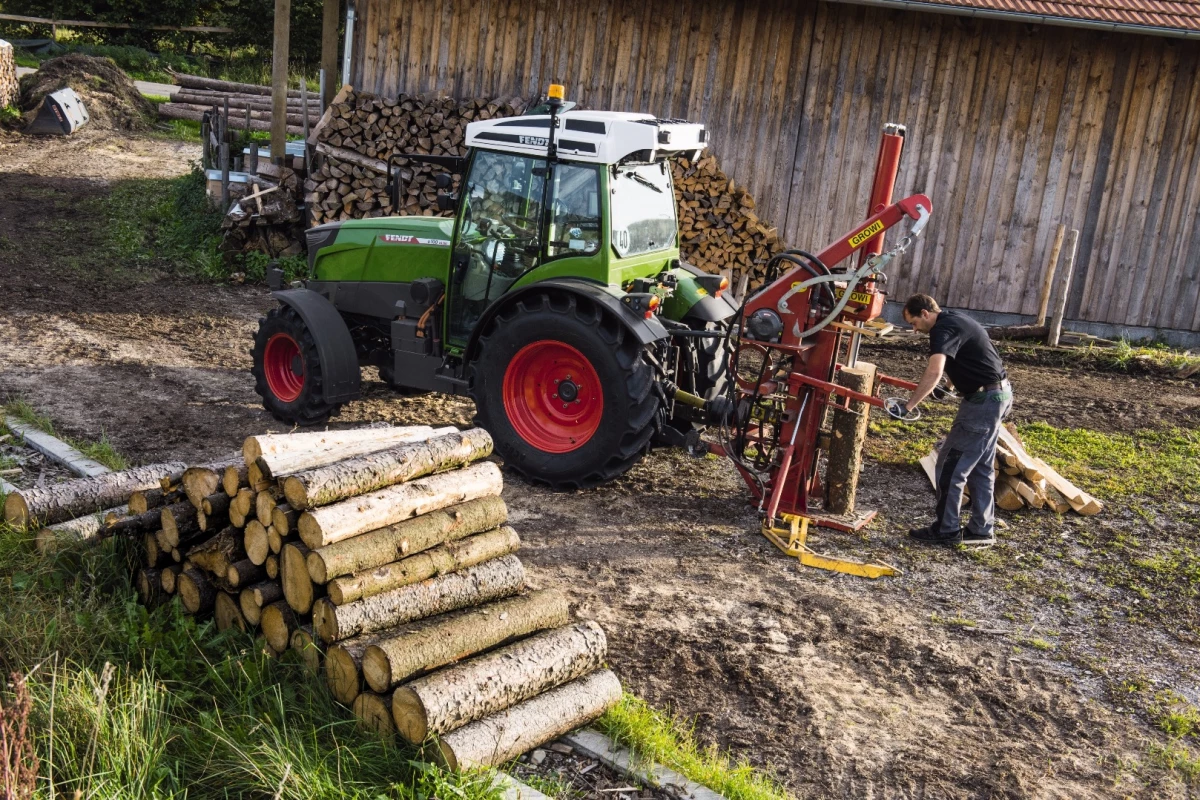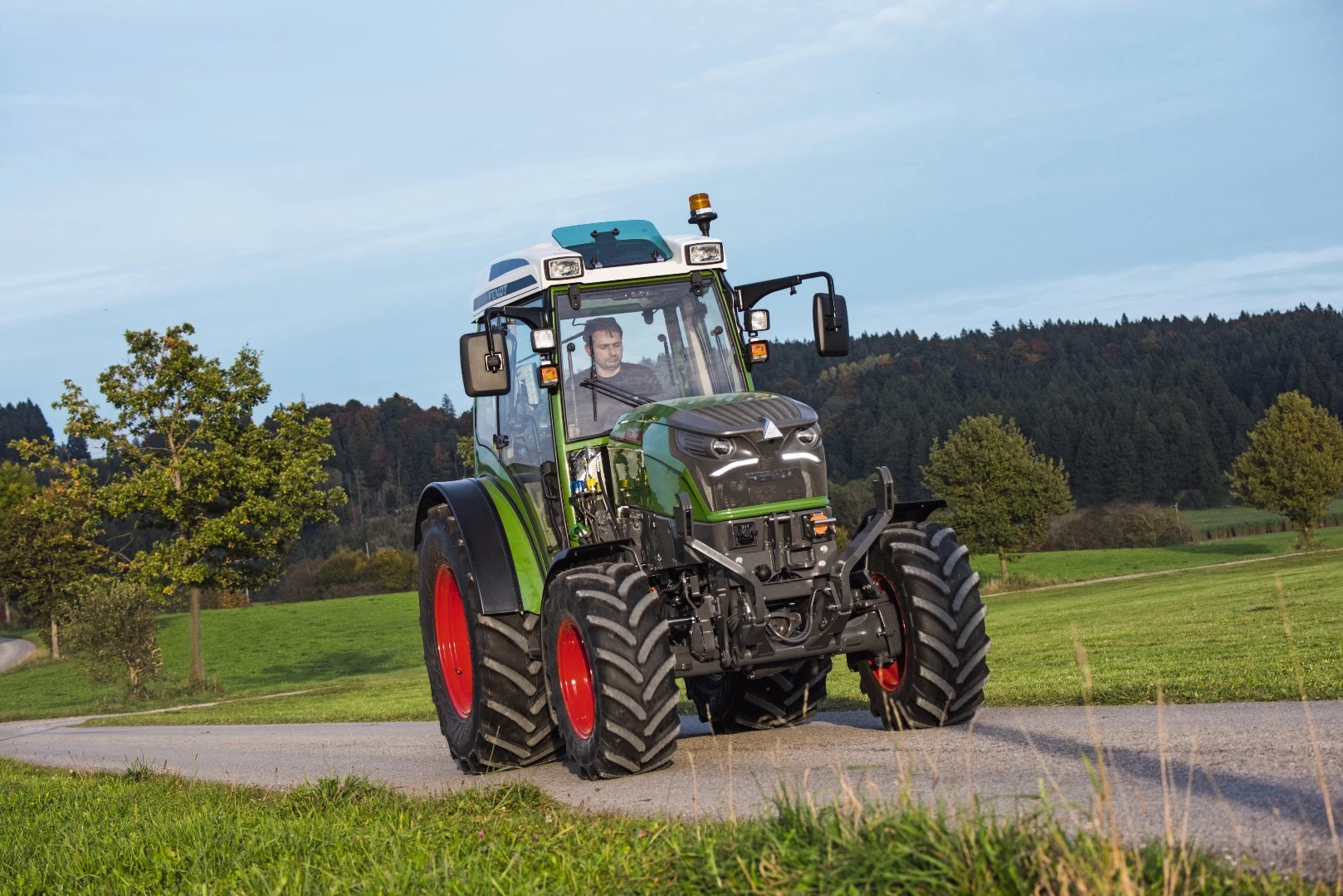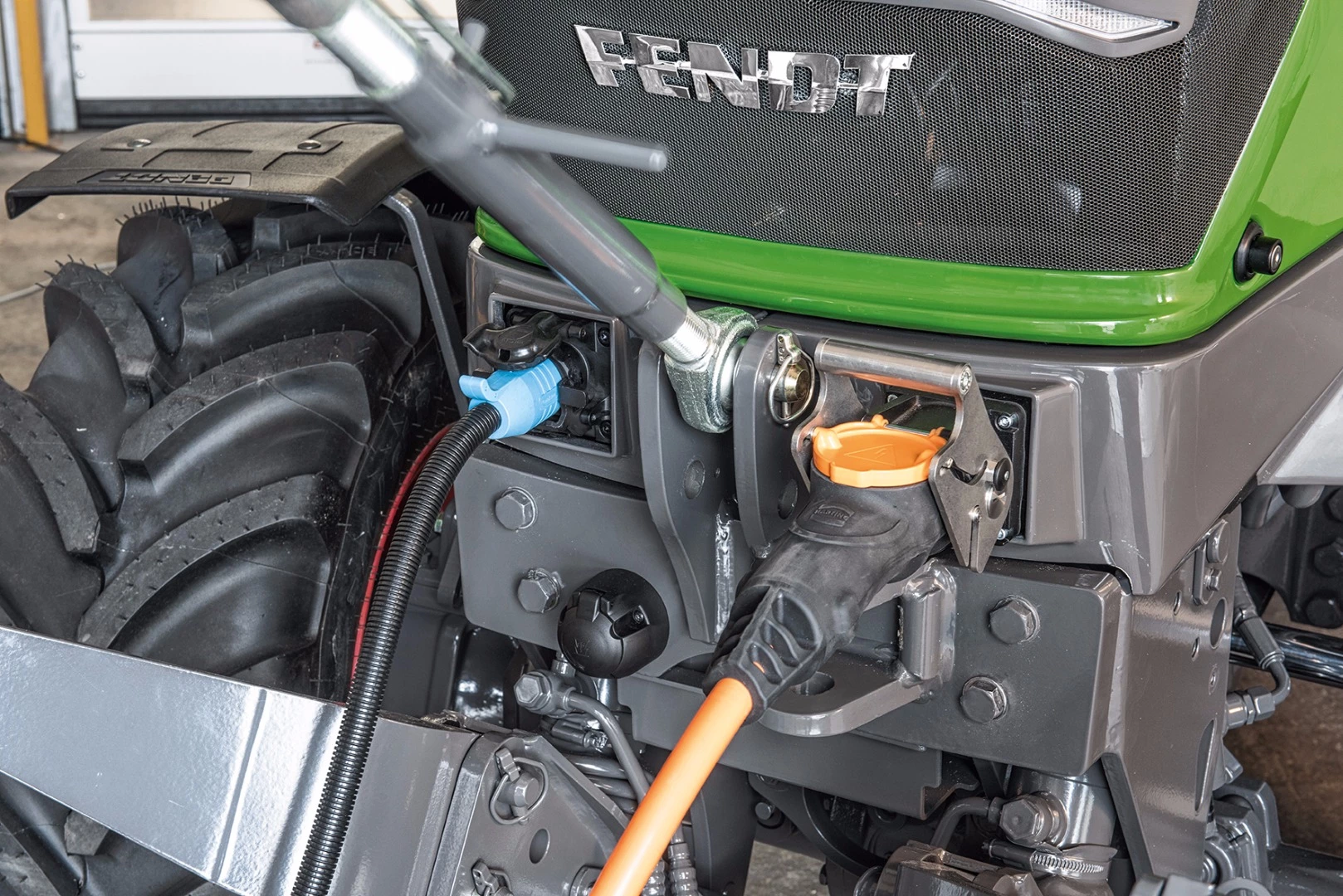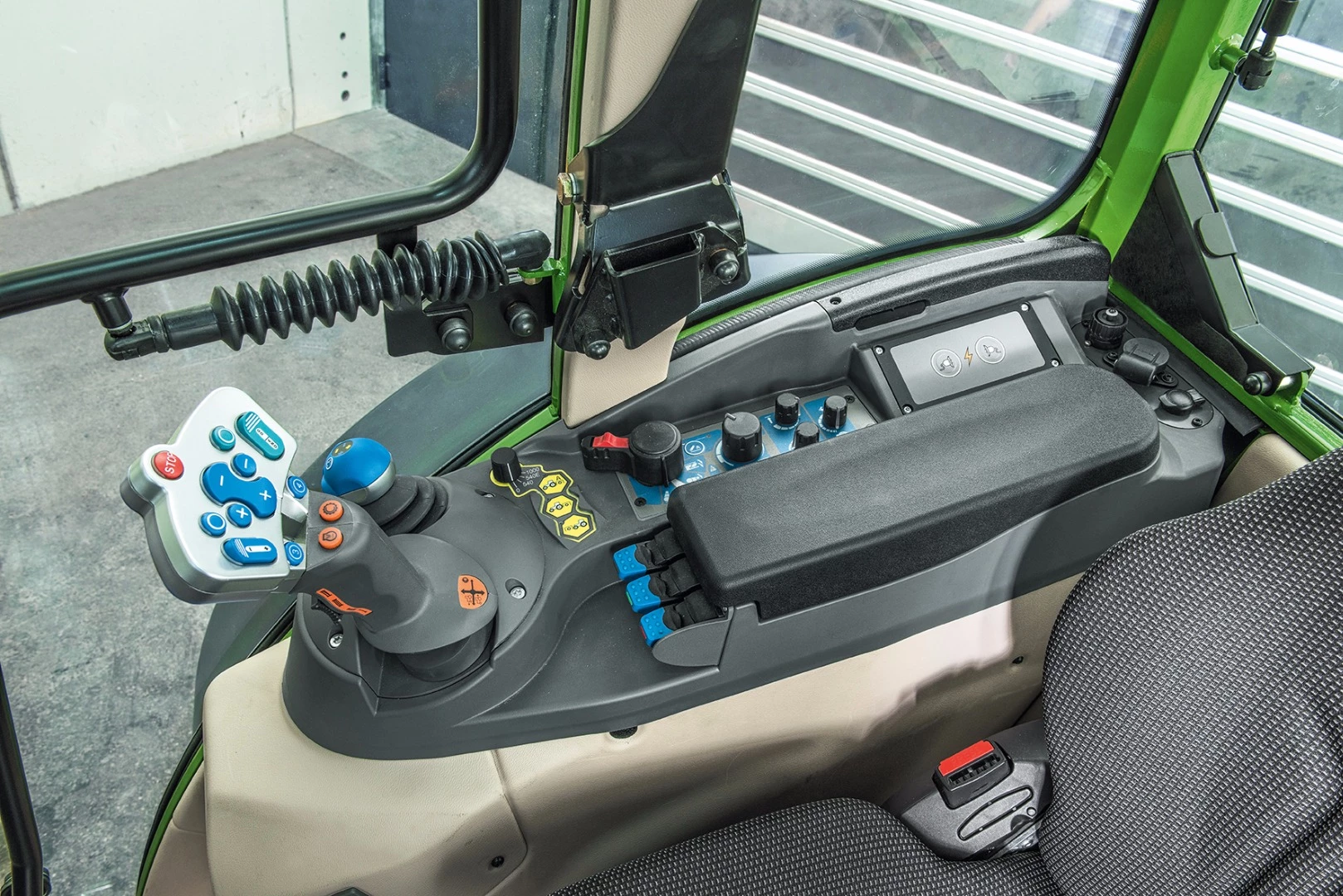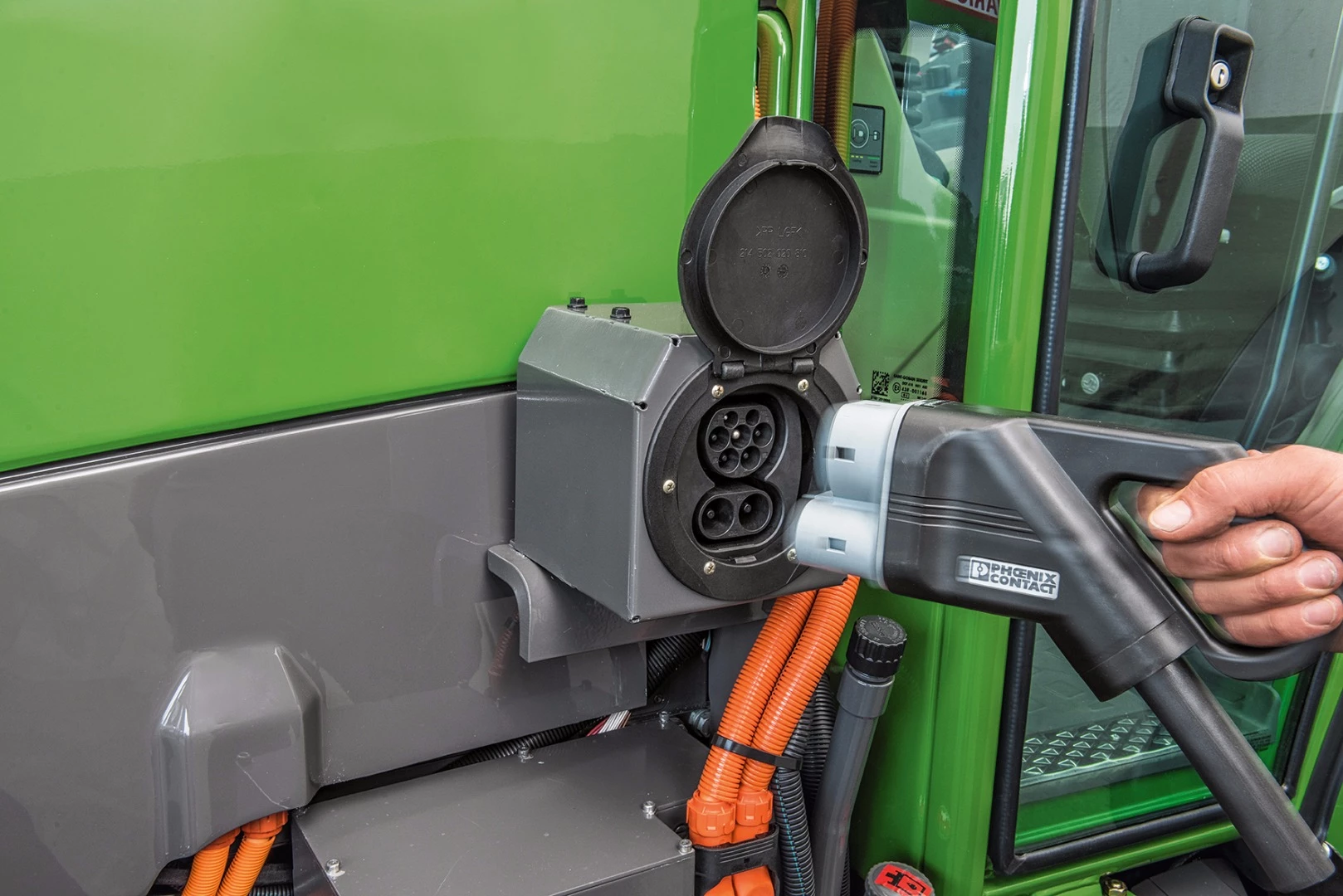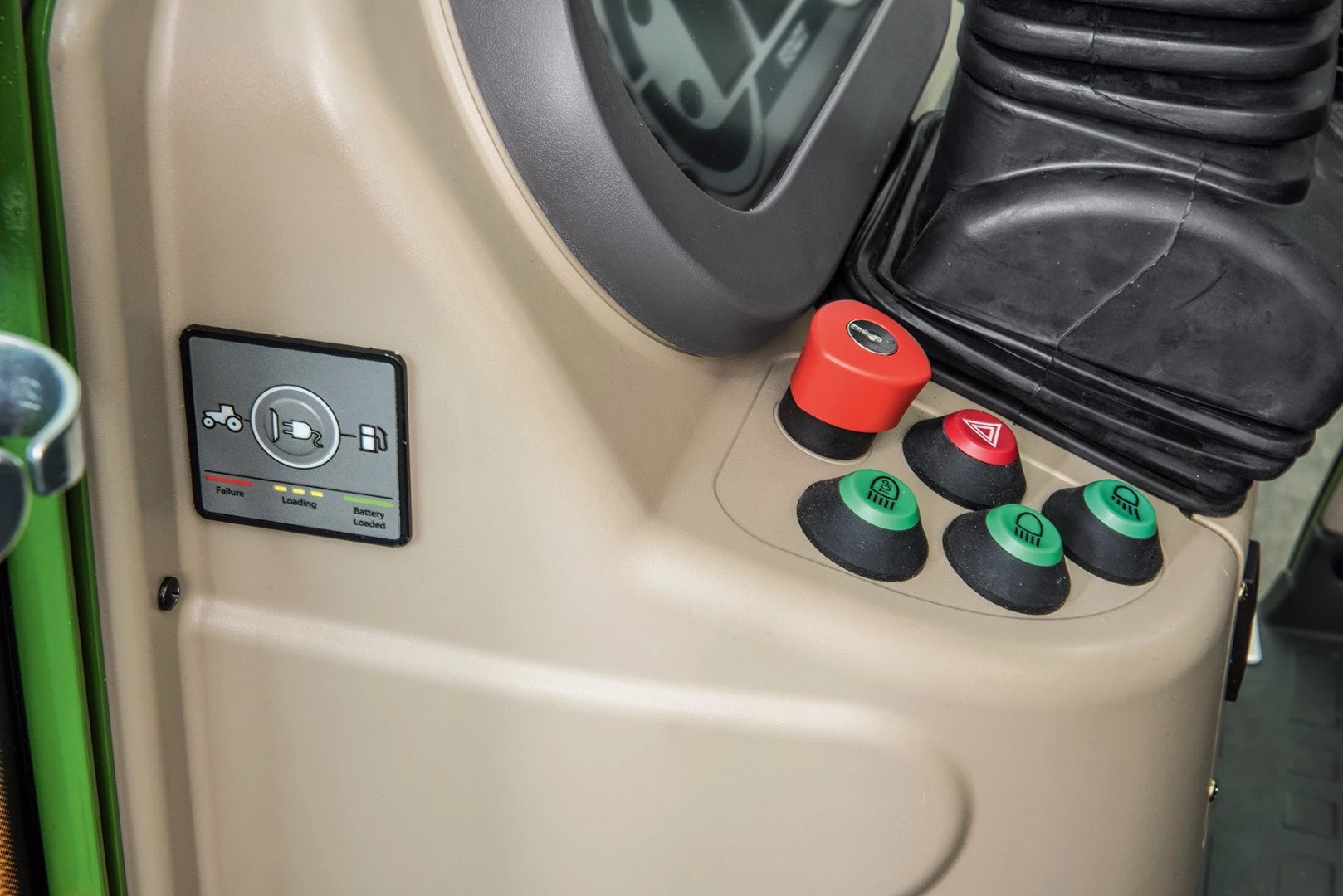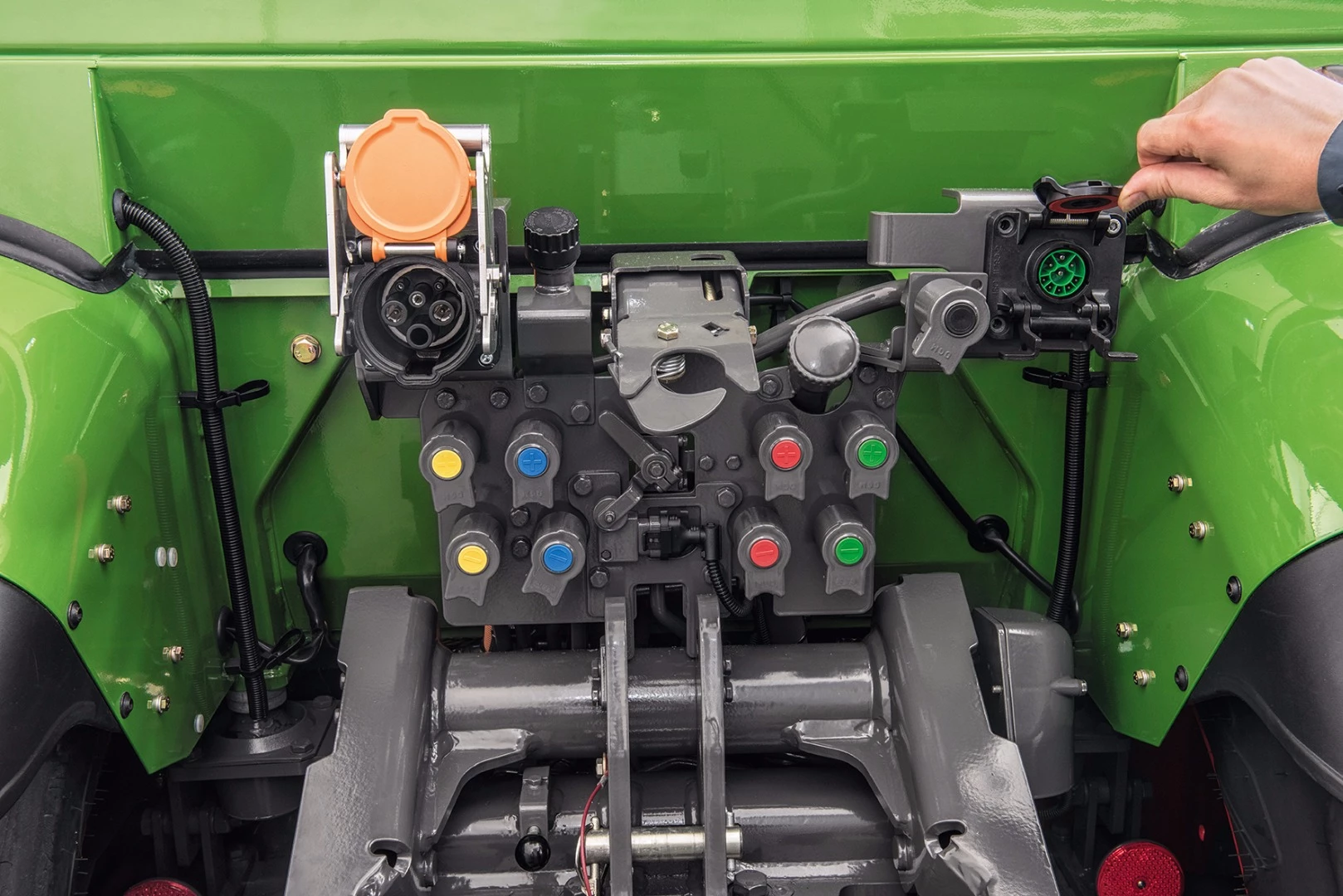The inevitable move towards the electrification of the farm gained further momentum this week when German agricultural machinery manufacturer Fendt announced the launch its new battery-electric compact tractor in 2018.
Shown at Agritechnica in Hanover for the first time, the e100 Vario is a battery-electric compact tractor with an output of 68 hp (50 kW) and five hours of operation per charge.
The e100 Vario runs a 650 V lithium-ion battery with a capacity of 100 kWh, which can be recharged up to 80 percent in 40 minutes using an IEC 62196 Type 2 connector, which is the standard for charging electric cars in Europe (and perhaps in America too in the near future). Alternatively, the battery can be charged with 400 V and up to 22 kW using a standard CEE outdoor socket.
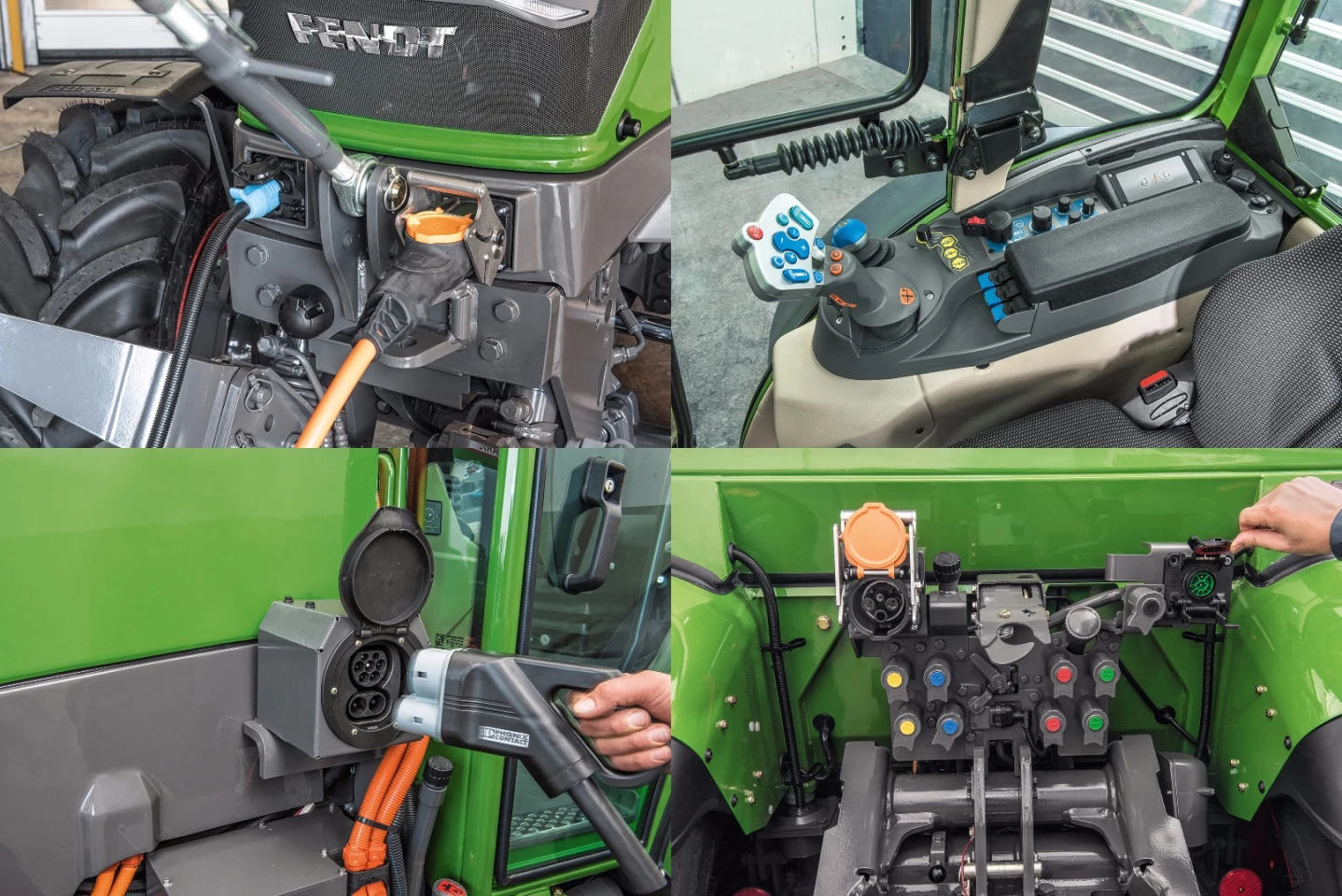
Fendt says the e100 Vario is fully compatible with existing hydraulic implements and it also has two AEF-compliant power interfaces for electrical equipment, with a short-term boost available of up to 150 kW.
Air conditioning of the tractor's cab (and the battery and electronics) is achieved with an energy-efficient, regulated, electrical heat pump and because the e100 Vario connects with a smartphone, the cab temperature can be warmed or cooled in advance and charging status can be monitored remotely.
Fendt claims the e100 Vario significantly reduces both running and maintenance costs and unlike petrol- and diesel-powered tractors, the battery-powered e100 Vario can be operated extremely cost-efficiently, with a net zero carbon footprint if the farm has its own power generation facilities using biogas, solar or wind power. As the e100 Vario has such a large battery capacity, it can also be used to store excess power and feed it back into the grid.
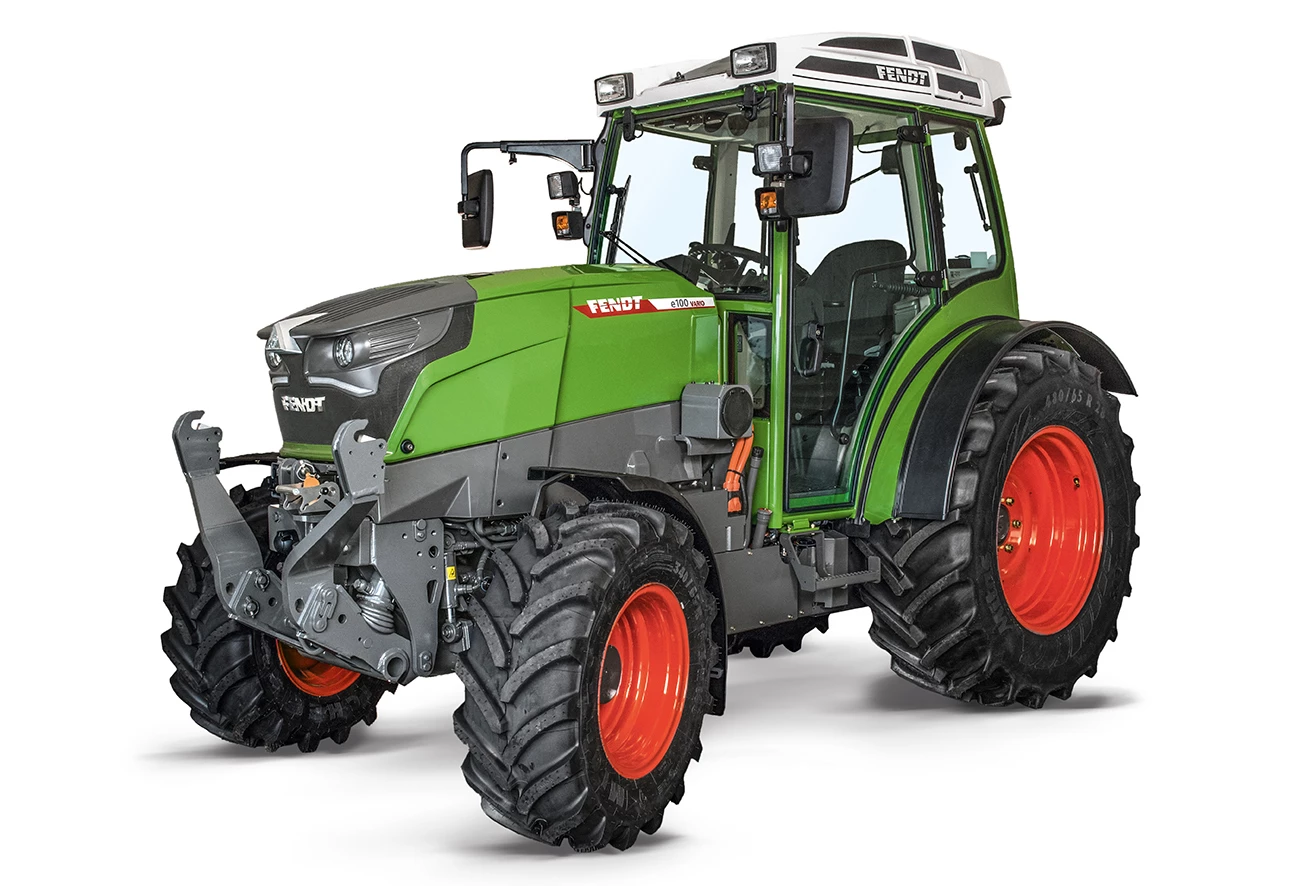
As with John Deere's electric tractor shown last year, the Fendt e100 Vario will probably not be generally available until 2019, as it will available in only limited numbers to selected companies and municipalities in 2018.
Source: Fendt
